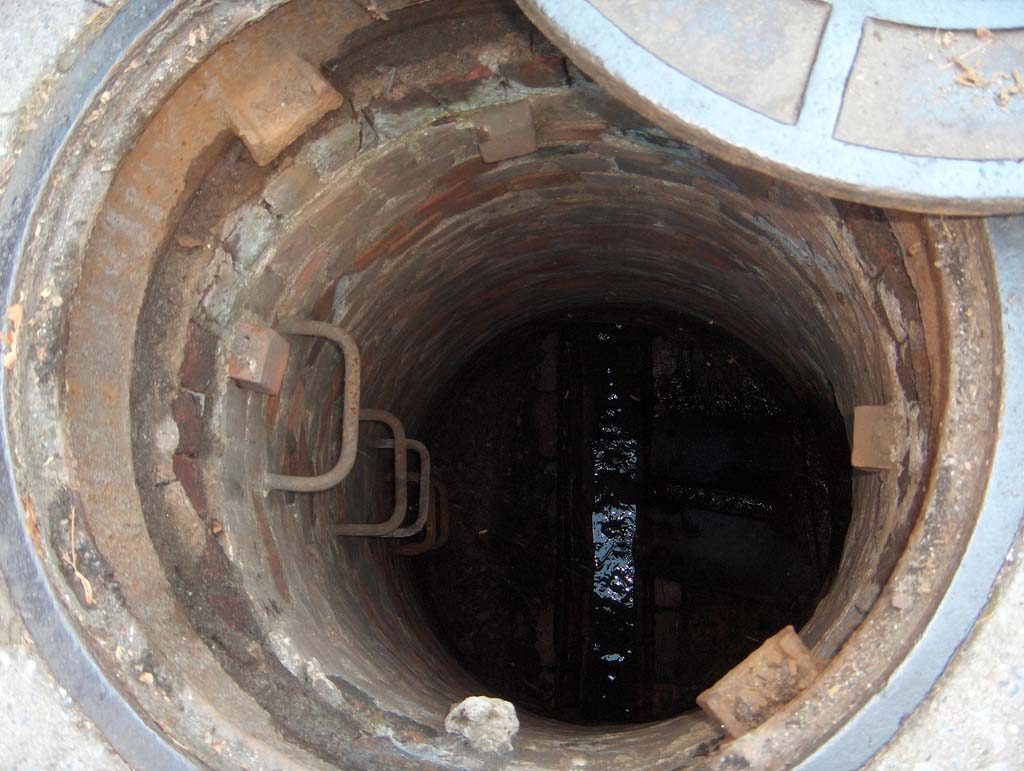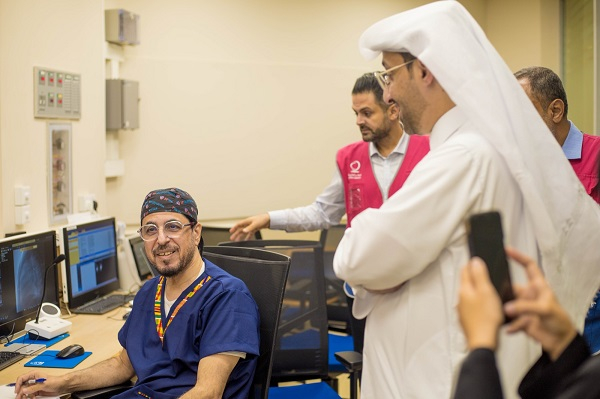
A government official faces a one-year jail sentence after being found guilty of “gross negligence” following the death of a five-year-old boy who fell down an uncovered manhole in Qatar.
Speaking after the verdict, the father of the child appealed to Qatari authorities to introduce stringent safety rules so that other families could avoid having to “share this sort of pain.”
Mohamed Sirajudeen’s son Fahim had been walking just ahead of his parents as they left the fish market in Abu Hamour at 7.30pm on Sept. 10, 2013 when the boy suddenly disappeared.
He had fallen down an open sewerage maintenance hole, which he hadn’t seen in the dark.
He was eventually rescued by workers from the fish market, who brought a ladder. But because Fahim had been at least partially submerged underwater and without oxygen for several minutes, his brain suffered irreversible damage.
He was rushed by ambulance to Hamad Hospital and was declared brain dead by his doctor. Six days after the incident, he died of heart failure.
Court case
Sirajudeen told Doha News that over the following 18 months, court proceedings were brought against two defendants for their involvement in the incident: a senior official at the Ministry of Municipality and Urban Planning (MMUP); and MK Transport and Construction Company, which was a contractor working for MMUP at the market at the time.
The verdict was issued last month, on March 31, but the family only received it in written form yesterday.
According to court documents shared with Doha News, the first defendant, named in the court papers as Abdullah Mabrouk Al Mass Abdullah Al Saady (Abdullah Al Mass), was sentenced to one year in jail and ordered to pay the family QR200,000 in blood money as well as QR20,000 in fines to the court.
The second defendant, which was contracted at the time by MMUP to suck out sewage water from the sewers and put the lid back on afterwards, was acquitted by the court.
Grave negligence
Al Mass was the head of the MMUP’s sanitary and sewerage department and had been charged with negligence.
Issuing the verdict, the judge and head of court Abdullah Ali Al Emadi, found that Al Mass had neglected to make sure the sewage facilities in the Central Market were safe.

According to testimony from an MK Transport and Construction Co. employee, the sewer’s lid at the market was “old, light, not fixed on the sewer, corrosive and had rust around its edges.”
A worker for MMUP said that he had taken pictures of the lid in its bad state and notified the head of sanitary and sewage department at MMUP (Al Mass).
Because Al Mass did not forward the concern to maintenance, his “grave negligence” in doing his job led to the death of Fahim, Al Emadi said in his judgement.
The judge added that Al Mass should have undertaken routine checks on the sewage facilities to ensure they were safe and operating well.
When questioned, Al Mass said he “didn’t remember whether the MMUP worker notified him” of the problem or not.
Family reaction
Speaking to Doha News following the publication of the verdict, Sirajudeen said he was “satisfied” that action had been brought against Al Mass.
“Everyone is human, but they should know that whoever they are, if they make a mistake then they should be punished,” he said.
Sirajudeen, an accountant from India, said he had attended around seven hearings at Qatar’s lower criminal court. But because court sessions are held in Arabic and were without translation, it was difficult for him to follow proceedings.
“After 18 months of court hearings and all of this, we are glad it is over,” he added.

However, he added that no verdict could take away the pain and suffering that he and his family continue to endure following the loss of their young son.
“What we have lost we can never get back. My wife cries every single day. There is nothing, nothing which can compensate for what has happened to us.
I never want something like this to happen to another family. I never want to share this sort of pain with another family.”
Sirajudeen, an accountant from India, said he wanted to highlight the facts in his case, however painful they are for his family, to raise awareness of the problem and to appeal to the Qatari authorities to ensure tough safety measures are put in place around buildings works and particularly holes in the ground.
“I want to spread awareness of the problem. I want the government to do something. Qatar is the richest country in the world. Their safety procedures should be perfect,” he said.
He added that simple measures such as putting barriers around the open hole and making sure the area was sufficiently lit could have shown up the open hole, and saved his son’s life.
“After this happened, people told us we weren’t looking after our son properly. But he was right with us. The area was dark – there were no lights at the time. We couldn’t see the hole,” Sirajudeen added.
Past accidents
Fahim’s was the third case of a child falling down an uncovered hole in Qatar in less than a year.
In November 2012, a three-year-old Jordanian boy fell into an 8m (26-foot) hole outside of an Al Sadd hotel, falling into a coma for three weeks before eventually passing away. That area had also been poorly lit.
And one month later, a three-year-old Omani girl was killed after falling into an open manhole near her home in Al Wakrah. Municipal workers conducting a cleanup apparently did not notice she had fallen in and secured the manhole cover before leaving for the night. She was found during a search of the area by neighbors.
Thoughts?







